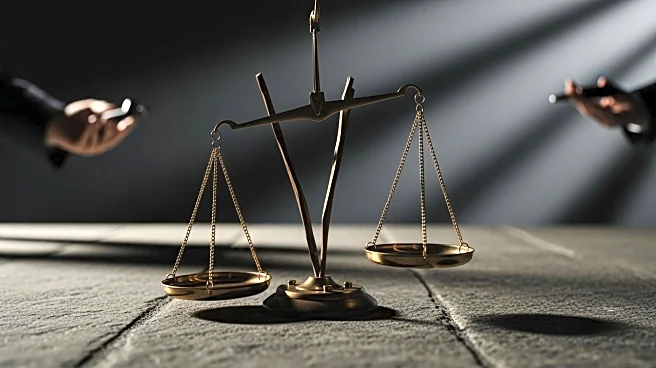What's Happening?
Israel has been engaged in a prolonged conflict with the International Criminal Court (ICC) over its investigations into alleged war crimes in Palestine. The ICC's probe, initiated in 2021, focuses on potential crimes committed during the 2014 Gaza War,
Israeli settlement policies, and the 2018 Gaza border protests. Israel, which is not a signatory to the ICC's Rome Statute, has opposed the court's jurisdiction, citing bias and political motivations. The conflict has involved surveillance and intimidation tactics by Israel, as well as diplomatic efforts to counter the ICC's actions.
Why It's Important?
The ICC's investigations into Israel's actions in Palestine have significant implications for international law and accountability. Israel's resistance to the court's jurisdiction underscores the challenges faced by international legal institutions in enforcing human rights standards. The situation highlights the tension between national sovereignty and international justice, with Israel and its allies, including the U.S., rejecting the ICC's authority. This conflict may affect the ICC's ability to hold accountable those responsible for human rights violations, potentially impacting its credibility and effectiveness.
What's Next?
The ICC's investigations are likely to continue, despite Israel's opposition. The court's findings could lead to arrest warrants for Israeli officials, complicating their international travel and diplomatic engagements. Israel may intensify its efforts to discredit the ICC and rally support from allies to counter the court's actions. The situation could lead to further diplomatic tensions and impact Israel's relations with countries that support the ICC's work.
Beyond the Headlines
The conflict between Israel and the ICC raises broader questions about the role of international legal institutions in conflict resolution and the balance between justice and political interests. The situation reflects the complexities of applying international law in regions with disputed sovereignty and highlights the challenges faced by the ICC in pursuing accountability in politically sensitive contexts.
















